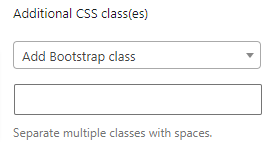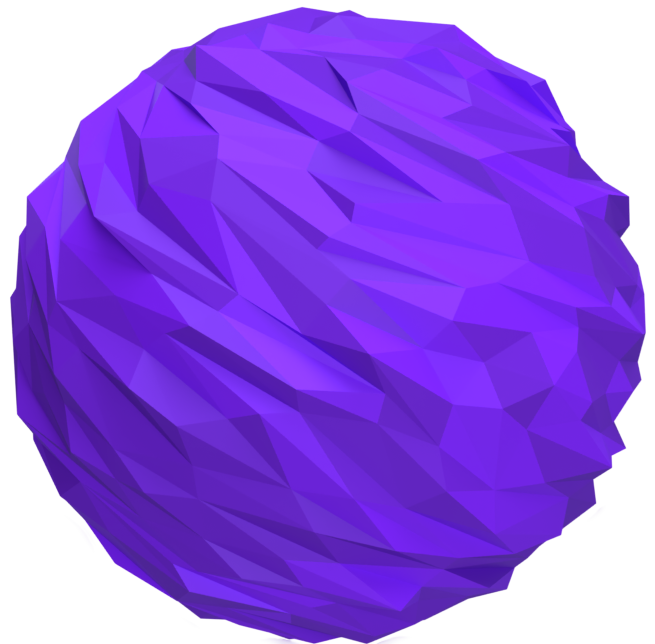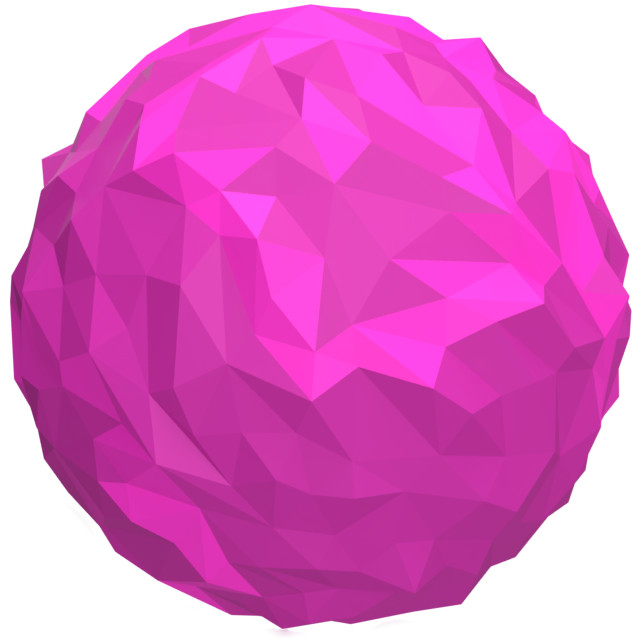Search
Read the original Bootstrap documentation on list groups here.
Overview
The list group block allows you to add a styled up list to a page. When you add the list group block you gain access to the list group item block. Each list group can have as many items as you wish.
The list group block has the following options:
Settings
Flush
The flush option allows you to remove some borders and rounded corners from a lost group. This is good if you want to add a list group inside another block such as a card. There are two options available:
- Default: Will include all default list group styling
- Flush: Adds the
.list-group-flushclass and removes surrounding borders and rounded corners

Layout
The layout option lets you change how a list group is displayed. There are two options available:
- Default: Will stack the list items vertically within the group
- Horizontal: Adds the
.list-group-horizontalclass and displays the list items next to each other from left to right.

Device specific settings
Along with global options for a block there are also device specific settings. These settings allow you to specify options that will be applied to their relevant device size. The device sizes available match up with the Bootstrap breakpoints:
- XS (<576px)
- SM (≥576px)
- MD (≥768px)
- LG (≥992px)
- XL (≥1200px)
- XXL (≥1400px).
Device specific settings are tabbed and to update a specific device you simply need to click on the relevant tab to reveal the options. Each device has the same options available. For the purpose of these docs we only explain one device tab (as all of the other tabs are the same for their related breakpoint).

Highlighted Tabs
Due to there being options for a number of different device sizes it could become confusing remembering which settings you have chosen. To help, when you make a change in a specific device tab the tab will be highlighted green. If all of the values in the tab are reverted back to the default then the highlight will disappear.

Hide on XS
You can hide this block on any device. As default all blocks are displayed. If you wish to hide a block on a specific device you can check this option. This option will only apply to the related device. To hide on other devices, click on the relevant device tab and check the Hide on [device] option.

Reset Settings
Blocks tend to have a large number of settings along with different settings for each device size. You may get to the point where you have changed lots of settings and want to revert them back to the default. This can be time consuming and difficult to remember which settings have been changed to we have supplied three buttons that make this a piece of cake. Simply click the relevant button to reset your settings.

- All: When you click this button is will reset all of the settings for the selected block
- Global: When you click this button it will reset all of the settings outside of the device specific tabs
- Devices: When you click this button it will reset all of the settings within the Device Specific tabs
Advanced
HTML Anchor
The HTML anchor option allows you to set an ID on the current block. This is useful when you wish to link to a specific area on a page.

Additional CSS class(es)
The additional class(es) option lets you add any other classes to the block. This is really useful as it allows you to utilise all of the Bootstrap utility classes to quickly apply styles and add more advanced customisations. A few examples of this would be to align all inner content by adding the text-start, text-center or text-end classes. You also have the ability to quickly search all of the available Bootstrap classes. To search Bootstrap classes open the Add Bootstrap class select box. You can filter the results by typing in the available search field. When you select an option it will automatically be added to your class list.

List group item
Settings
URL
In the block toolbar you will see a link icon. When you click this icon you will see an option to add a url. The url can be to a webpage or an id attribute on the page. To add a link simply type it into the link field. There is also an additional option to open the link in a new tab. If this option is checked then a target="_blank" attribute will be added to the link.

Once you add a link you may decide you want to remove it. When a block has a link the link icon will have a black background, to remove the link click the icon.

Active
The active option adds the .active class to the block which changes the styling of the item to indicate to the user that it is the current list item.

Disabled
The disabled options adds the .disabled class to a block which changes the styling of the item to indicate the item is disabled. Additional JS may be needed to prevent user clicks.

Action
If you have added a link to an item you may want there to be a hover state. The action option allows you to do this. When selected the .list-group-item-action class will be added to the block and additional hover styles will be added to the item.

Contextual classes
The contextual classes option allows you to change the colouring of an item. You can choose from the predefined Bootstrap theme colour schemes. Changing this option will update the background, text and border colours of the item. There are eight options available:
- Primary
- Secondary
- Success
- Danger
- warning
- Info
- Light
- Dark

Device specific settings
Along with global options for a block there are also device specific settings. These settings allow you to specify options that will be applied to their relevant device size. The device sizes available match up with the Bootstrap breakpoints:
- XS (<576px)
- SM (≥576px)
- MD (≥768px)
- LG (≥992px)
- XL (≥1200px)
- XXL (≥1400px).
Device specific settings are tabbed and to update a specific device you simply need to click on the relevant tab to reveal the options. Each device has the same options available. For the purpose of these docs we only explain one device tab (as all of the other tabs are the same for their related breakpoint).

Highlighted Tabs
Due to there being options for a number of different device sizes it could become confusing remembering which settings you have chosen. To help, when you make a change in a specific device tab the tab will be highlighted green. If all of the values in the tab are reverted back to the default then the highlight will disappear.

Hide on XS
You can hide this block on any device. As default all blocks are displayed. If you wish to hide a block on a specific device you can check this option. This option will only apply to the related device. To hide on other devices, click on the relevant device tab and check the Hide on [device] option.

Reset Settings
Blocks tend to have a large number of settings along with different settings for each device size. You may get to the point where you have changed lots of settings and want to revert them back to the default. This can be time consuming and difficult to remember which settings have been changed to we have supplied three buttons that make this a piece of cake. Simply click the relevant button to reset your settings.

- All: When you click this button is will reset all of the settings for the selected block
- Global: When you click this button it will reset all of the settings outside of the device specific tabs
- Devices: When you click this button it will reset all of the settings within the Device Specific tabs
Advanced
HTML Anchor
The HTML anchor option allows you to set an ID on the current block. This is useful when you wish to link to a specific area on a page.

Additional CSS class(es)
The additional class(es) option lets you add any other classes to the block. This is really useful as it allows you to utilise all of the Bootstrap utility classes to quickly apply styles and add more advanced customisations. A few examples of this would be to align all inner content by adding the text-start, text-center or text-end classes. You also have the ability to quickly search all of the available Bootstrap classes. To search Bootstrap classes open the Add Bootstrap class select box. You can filter the results by typing in the available search field. When you select an option it will automatically be added to your class list.


